Dear Community,
This past fall lit my heart on fire. I got to launch Street Data Pod (please subscribe!) with one of my dear friends, Alcine Mumby. I got to work closely with several districts in the U.S. and Canada that are deeply engaged in school transformation. I had the privilege to launch the first-ever student Street Data Community of Practice with 50 courageous 11th graders from Abbotsford, BC. These young revolutionaries have been listening to peers around issues like:
- the impact of grading on mental health;
- equitable assessment practices;
- how bullying affects student experience; and
- creating inclusive spaces for students struggling with addiction.
Most recently, student teams used the Street Data Uncover protocol (pages 180-81) to analyze their empathy interviews, and they are now gearing up to reimagine their schools into more equitable and inclusive spaces. This work is, quite frankly, amazing and brings me joy and inspiration.
I also made it to Prince George, BC in October where I bumped into Kelsey MacDonald, an innovative teacher-leader who is embedding land-based education and a pedagogy of student voice into her practice. I’ve been so compelled by her work that I asked if I could interview her for this month’s newsletter. You are in for a treat. You’ll find excerpts of our interview below, along with a slide deck that tells the story of a particular land-based learning experience Kelsey helped to design, and two video clips of her talking about this work. This year, I hope to spend more and more time in classrooms and listening to students as the most central catalysts of school transformation.
With love and hope for a new year,
Shane
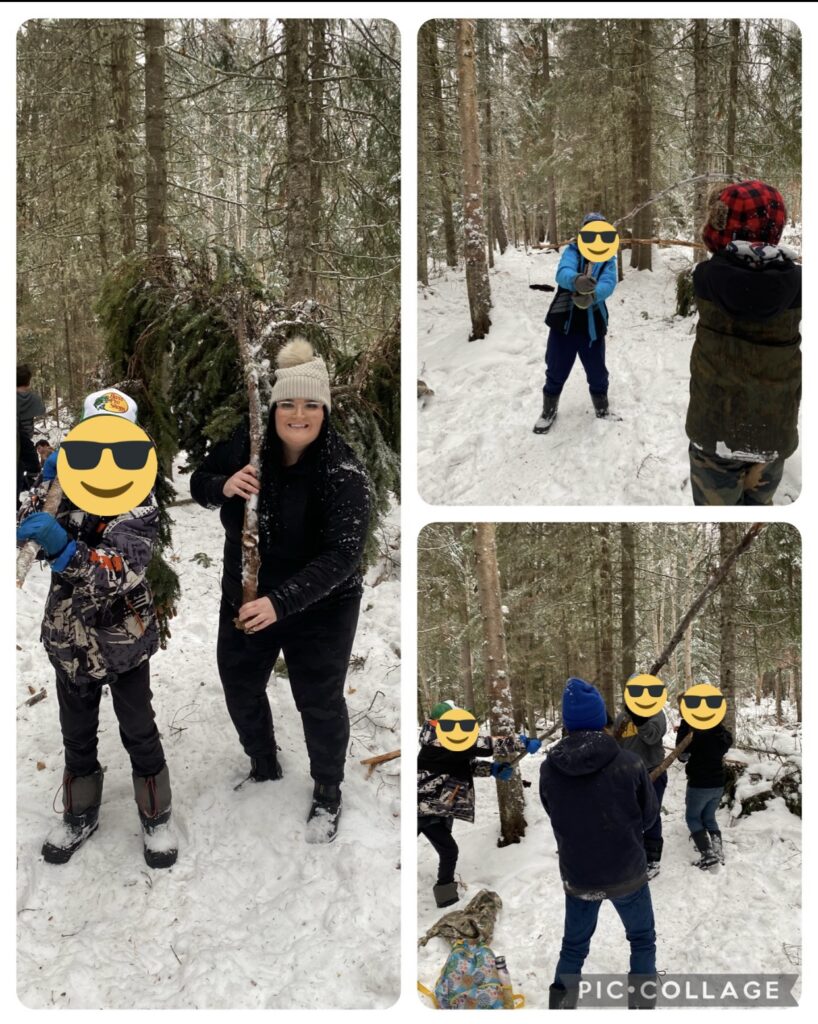
Teacher Voices: Street Light on Kelsey MacDonald, Indigenous lead, land-based resource teacher K-12 in the Indigenous Education Department of SD 57, Prince George
Who are you, where are you from, and how does the concept of student agency tie to your role as an Indigenous education land-based educator K-12?
My name is Kelsey MacDonald, and I work in Prince George School District in British Columbia. My roots are from back east in Nova Scotia, Newfoundland, and my parents moved to BC to seek job opportunities. I have a bubbly and extroverted personality, and education runs in my family. My dad is an administrator and always talks about the importance of story.
Here in Prince George, we live through the seasons and I recognized that I had to start to authentically embed the seasonal rounds inside my teaching. My role as a district teacher is to connect with classroom teachers and help them work alongside and connect with our community for them to also embed land-based education in their practice. This allows students to be partners in what we teach and how we learn. This work comes from the heart—it is not about doing more work or working harder; it is about coming from a place of authenticity, creativity, and curiosity—I call this work “heart work”. My role is not to change lesson plans; but rather to change mindsets. I strive to build teacher capacity and capture learning stories for them to expand their mindsets—helping them find their gift and passion and immersing them in the benefits of land, experiential and project-based learning. We do this in connection with the local Dakelh Holistic Lifelong Learning Model and the BC Curriculum, focusing on core competencies such as communicating, creative and critical thinking, and personal and social awareness. We’re not teaching robots here; we’re actually teaching beautiful human beings who are going to create our futures in the best way possible, and as they have been guided.
What does culturally responsive education mean to you, and what do you see as the connection to Street Data?
Culturally responsive education means making learning relevant to students, while providing authentic safe spaces for them to share their culture and their stories. It’s about creating learning environments connected to people, place, and land where every child’s history and background is celebrated and acknowledged in the most holistic and authentic ways. It is also about figuring out what our students love to do—their strengths and interests—and actually building curriculum and units around those aspects we know about each child. In many instances, I gather information through circles. We also co-create identity surveys and rubrics to learn about the experiences of our urban Indigenized youth. I work closely with Lheidli T’enneh Elder Clifford Quaw, who really sets the tone for optimal learning in a space that connects us closer to people, land, and place. We move from a focus on ‘product and task’ to a focus on discovery of ways of knowing and being.
Click HERE to witness a learning story, in images and words, from Kelsey and Clifford’s land-based education work.
What advice do you have for teachers trying to cultivate a pedagogy of student voice?
I embed the 6 simple rules of a pedagogy of voice on the land through pre-lessons, learning on the land experiences, and post-lessons. In land-based education, everyone is a teacher. Students are able to be in their element by sharing and teaching lessons around their own ways of living and knowing: for example, harvesting, gathering medicines, hunting, fishing and trapping. This sharing naturally happens in the outdoor classroom as just simply being outside sparks curiosity, questions and wonder about the world around us and how we are all interconnected. Reid Roberts (Outdoor Education Teacher) and I witness this weekly when we take students out on the Trapline. I use the pedagogy of voice to allow students to guide the learning through Indigenous ways of knowing and being—connecting to the cultural roots of oral storytelling and dialogue. We reconnect to the land and view the land as our teacher.
My biggest advice to fellow educators is to never forget your why—why you chose this profession. Take the time to honor your gifts and your strengths. For me, I love the outdoors; I love learning from and with the land. When you’re creating your yearly plan—your units and lessons—take it a step further and be sure to utilize your why and your gifts. If you love what you are teaching and doing, your students are going to love what they are learning and doing.
Also, we tend to forget that we are in possession of somebody’s greatest gifts as teachers. We need to honor that it isn’t actually about us; it’s about them—our students. It’s about their learning—providing chances, resources and opportunities to help them figure out who they are, the strengths they bring to their learning, and how to make ourselves lifelong learners just like our students. When we “Talk Less, Smile More”, the students are witnessing and experiencing a culture of learning where every single child is celebrated and acknowledged in the most holistic ways.
Kelsey MacDonald is an aspiring K-12 Indigenous Lead Resource teacher in School District 57, with a passion for making learning relevant through play, inquiry, place, and land-based education.
Kelsey’s Motto:
May you always embrace a culture of learning that is always connected to people, land, and place where every individual, regardless of history or background, is celebrated and acknowledged in the most holistic and authentic ways.
We invite you to watch these two videos of our conversation with Kelsey on YouTube:
“Gathering Evidence Through Circle and Story”
“Land Based Education: A 1 Inch Window”
_______
BRAVE SPACES INSTITUTE
May 8-9, 2023
REGISTRATION NOW OPEN!
Our next virtual Brave Spaces Institute will take place on May 8-9.
CLICK HERE FOR MORE INFORMATION & TO REGISTER
_______
Take a look at this recent video from the Abbotsford School District’s efforts to center student voice and agency in middle schools. I have been blessed to partner in this work for the last several years.
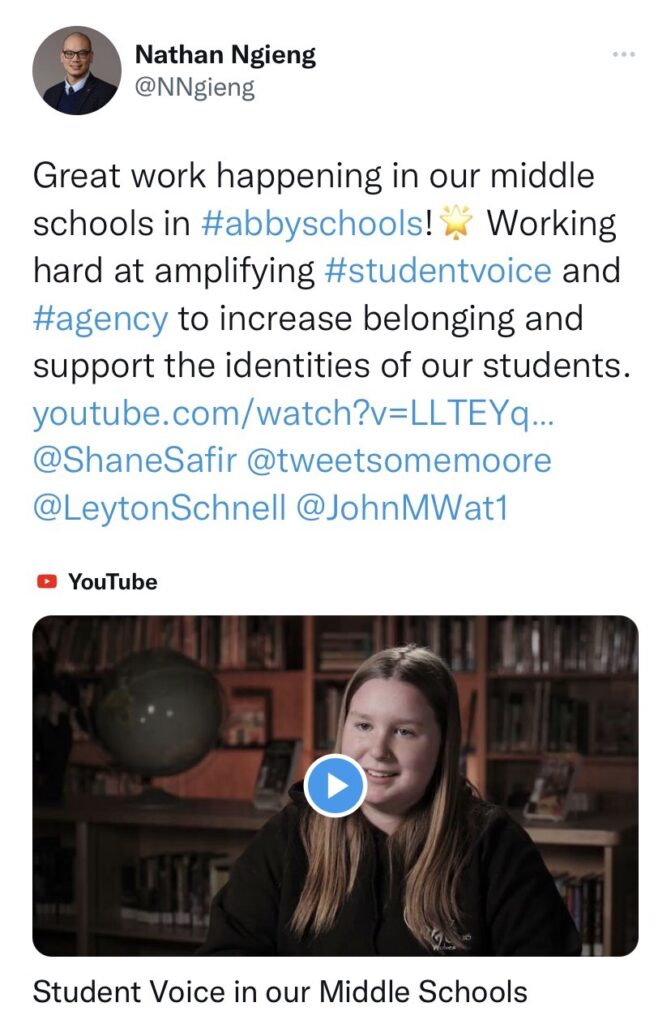
I had the pleasure of being interviewed by Roberto German for his podcast, Our Classroom. His new book of poetry, Blue Ink Tears, is available for pre-order. Here’s some more information from Roberto about his book and how to order:
About Blue Ink Tears…
Since 7th grade, poetry has been an outlet for me. It helps me navigate all of who I am and what I feel. In college, as I looked across all my pages and all the tears shed in blue ink, I realized I had a book in my hands; a compilation of all my secrets and wonderings. Blue Ink Tears is for those that understand what it is to love the beautiful struggle, and to offer insight to those that don’t.
In this three-part poetry collection I tell stories about love, relationships, race, identity and more. Written over the span of 20 years, you’ll hear from teen Roberto all the way to adult me.
The pre-order links are now available via Multicultural Classroom! Furthermore, if you want to take an extra step to help this book become a success then join the launch team!
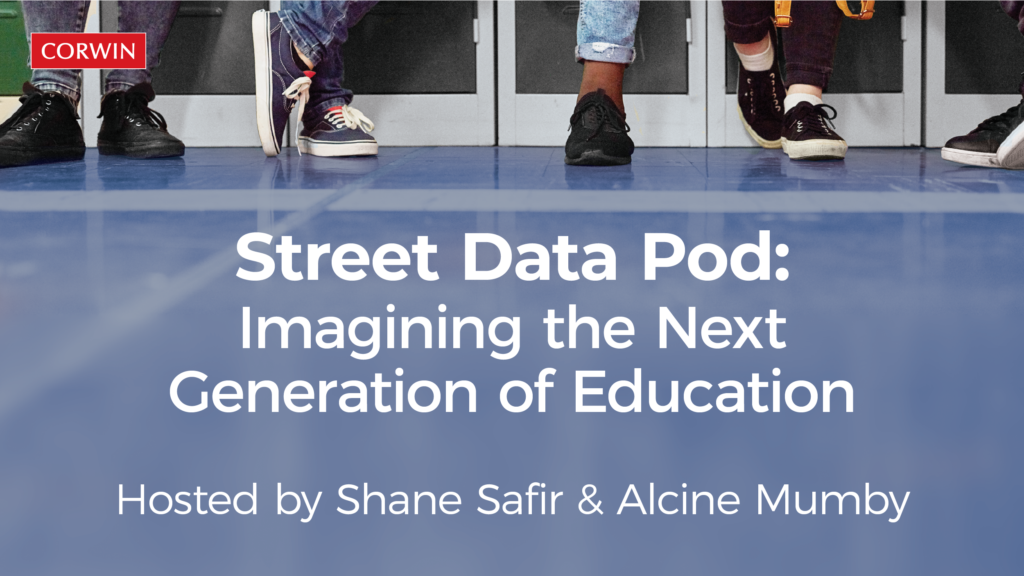
Street Data Pod: Imagining the Next Generation of Education opens a window into stories of school transformation. Using the bestselling book Street Data as a frame for discussion, these inspiring hosts crack the world of education and data wide open. Through compelling interviews with thought leaders, administrators, students, and teachers, we hear how education can be transformed as we move beyond our fixation on big data as the supreme measure of equity and learning and toward data that is humanizing, liberatory, and healing.
Host Shane Safir – co-author of Street Data – is a writer, coach, and facilitator who brings her expertise from nearly 25 years in public education – and her perspective as a white mom of multiracial children. Co-host Alcine Mumby draws upon her lived experience as a Black single woman and her 25 years as a national leader in redesigning assessment to center student-led demonstrations of learning. Together, they model new ways of being in conversation around challenging issues of race and equity.
Check out our latest episodes:
- Episode 7: ”Leading Like a Teacher”: The Role of Deep Listening in School Transformation
- Episode 8: “Connecting Present to Past”: The Impact of Critical Pedagogy
Season 2 of Street Data Pod is coming to the sound waves near you soon! Our first guests will be Linda and Kia Darling-Hammond, esteemed scholars and authors of the recent book The Civil Rights Road to Deeper Learning: Five Essentials for Equity. I am so humbled and excited to interview one of my personal heroines.
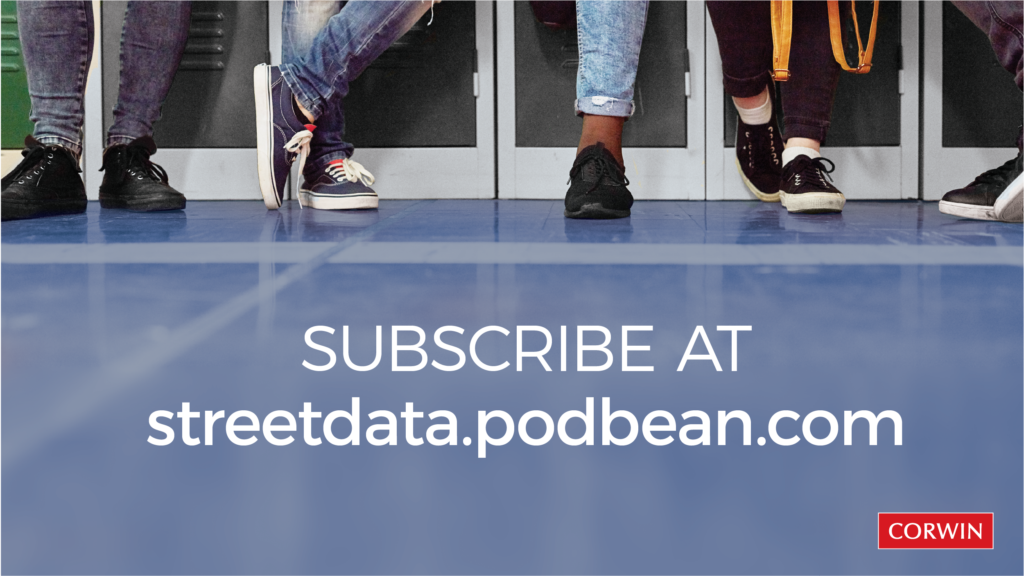
Last, but not least, Street Data has been featured on some great podcasts in recent months. I invite you to check them out!
- “Got Data? with Shane Safir” Our Classroom podcast, hosted by Roberto German
- “The Story of Street Data (with Shane Safir)” EduCrush podcast, hosted by Natalie Vardabasso
- “Street Data with Shane Safir” Leader Chat with host Jeff Rose
- “Should We Compromise Our Belief System for Equity with Shane Safir” Leading Equity podcast with host Sheldon L. Eakins, Ph.D.

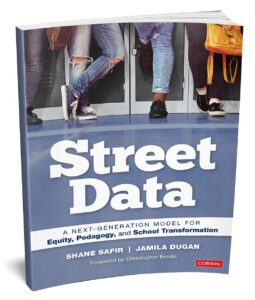 Enter your email here and get a free copy of the first chapter of Street Data!
Enter your email here and get a free copy of the first chapter of Street Data!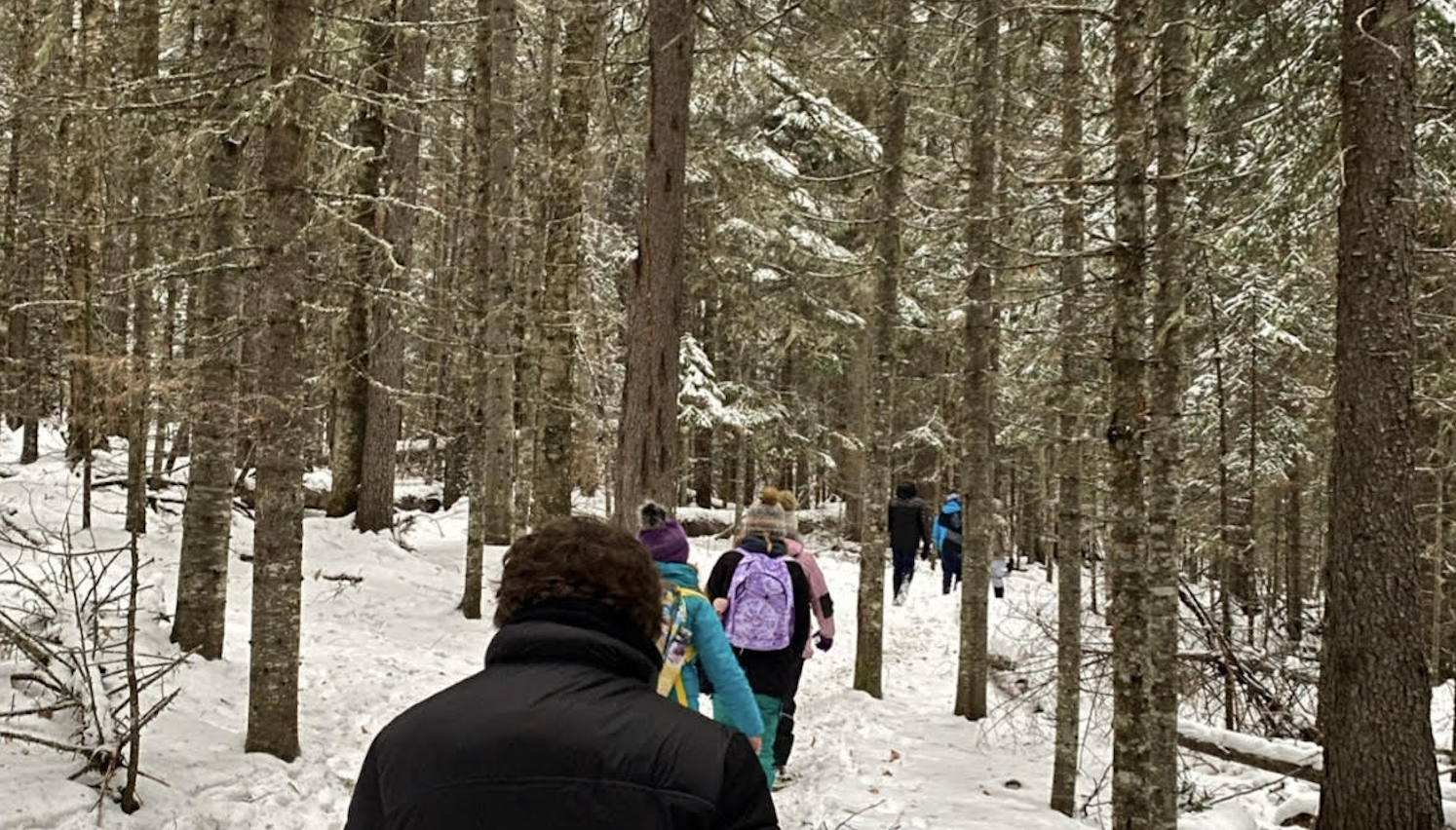
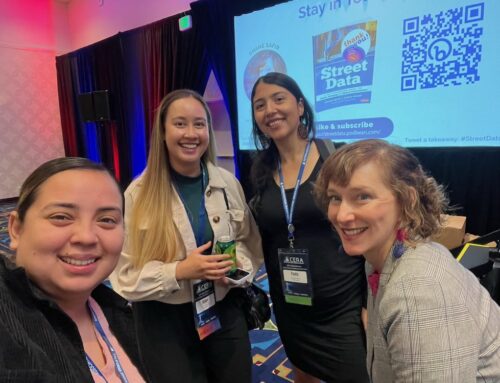
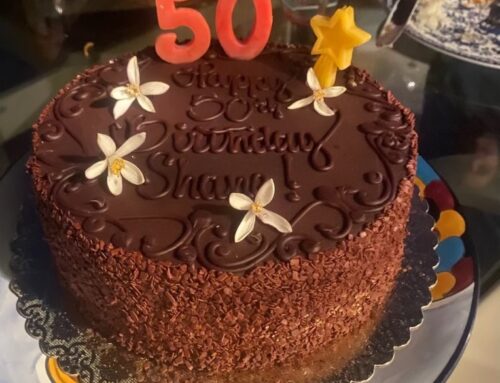
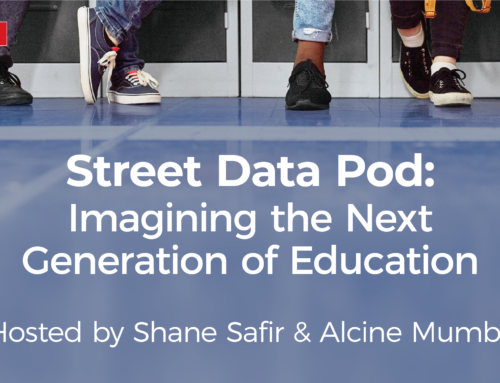

Leave A Comment
You must be logged in to post a comment.